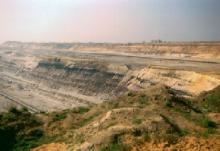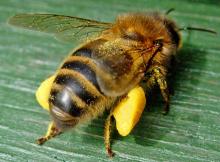Brand Kalmthoutse Heide grootste ecologische ramp ooit in Vlaanderen
De brand op de Kalmthoutse Heide is de grootste ecologische ramp ooit in Vlaanderen. Dat meldt het Agentschap voor Natuur en Bos. Het vuur heeft een recordaantal hectare uniek Europees natuurgebied verwoest. Ongeveer 600 hectare heide ging in de vlammen op. Het is de eerste keer dat zo'n oppervlakte verloren gaat. Het vuur hield vooral huis in de droge en natte heide, die allebei Europees beschermde habitattypes zijn. Het zal jaren duren eer het natuurgebied hersteld is, maar de kans dat bepaalde zeldzame plant- en diersoorten die typisch zijn voor de unieke heidevegetatie zullen weerkeren, is klein.










